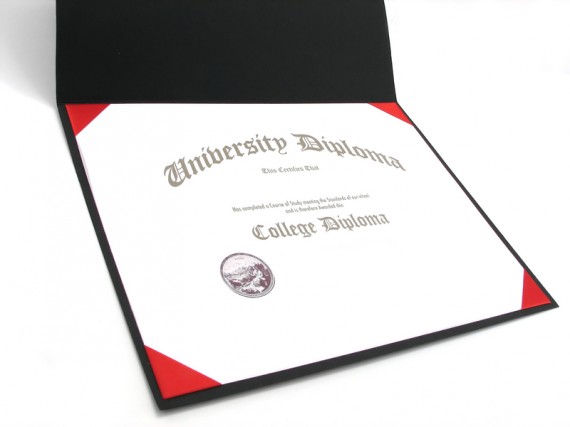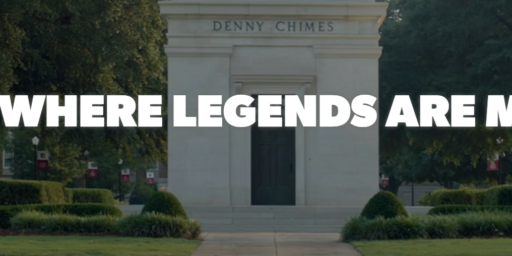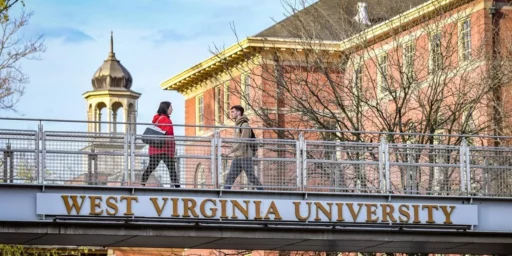Underfunded Higher Ed
Musings on the costs of college.
 David Leonhardt has an essay worth reading at the NYT: The Assault on Colleges — and the American Dream
David Leonhardt has an essay worth reading at the NYT: The Assault on Colleges — and the American Dream
The United States is investing less in college education, at the same time that the globalized, digital economy has made that education more important than ever. Gaps between college graduates and everyone else are growing in one realm of society after another, including unemployment, wealth and health.
Given these trends, the declines in state funding are stunning. It’s as if our society were deliberately trying to restrict opportunities and worsen income inequality.
[…]
Since 2008, states’ per-student spending on higher education has fallen 18 percent nationwide, according to inflation-adjusted numbers from the Center on Budget and Policy Priorities. The cuts have occurred in both blue and red states, with somewhat larger ones in Republican-run states. States made deep cuts after the financial crisis and have since failed to restore funding, choosing instead to cut taxes or spend money on health care, prisons or other areas.
“States are making it much more difficult for their residents to get high-quality higher education,” Sandy Baum of the Urban Institute said. “They are causing their institutions to charge more, to take more out of state students, to cut quality. It’s very shortsighted.” That’s exactly the right word, because spending on education often more than pays for itself in the long run.
Indeed.
The entire piece is worth a read, if anything for the charts alone.
And yes, I understand that there are criticisms that can be leveled at higher education in terms of increased costs, with the most prominent examples being administrative costs and building things like fancy dorms and student recreation centers (lazy rivers!! climbing walls!!) and so forth.
I will not defend, en masse, these moves. And yes, it is quite possible to find examples of questionable spending on campuses. Admin bloat is one thing, although part of admin bloat is a result of governmental pressure to increase assessments and other bureaucratic requirements. Higher education is driven by a complex web of bureaucratic activity–more than most people realize (e.g., financial aid, accreditation requirements, etc.). Further, as pressure is brought to bear to recruit students to pay the tuition needed to run the institutions in the face of state budget cuts, you find that things like recruiters, marketers, and the like end up being hired. Further, as outside funds beyond tuition are needed, development and gift offers, grant writers, and so forth are needed to go out and solicit funds, and so forth.
And when tuition becomes the central means of funding an operating then competition for students increases for each enrollment. It is easier to impress an 18 year-old with nice dorms and a rec center, than it is with the c.v.’s of the biology faculty (this can be true of parents as well, although they usually want to know if their child can get a job after graduation). It is a difficult cycle. The more colleges and universities have to operate in a market place and compete for “customers” the more outward appearances come to dominate behavior. (And, of course, the notion that students are customers, who deserve customer service, creates its own set of problems).
It also doesn’t help that alumni and boosters often pay more attention to athletics than to academics.
To get back to the linked piece, it is problematic that over the last several decades that is has become more difficult for persons of lower and modest income to attend college. This fact has, and will continue to have, significant impacts on the growing inequality problem in the US.






We should be considering the possibility that we are funding the wrong kind of education, and that the resulting schism contributes to the creation of a permanent underclass that has to limit its aspirations to burger flipping because they can’t check off the box that says “degree.”
This problem is exacerbated by the fact that the branding of schools is so entrenched that it is simply not possible to create new for-profits that can possibly compete with Harvard, Stanford, etc. The top tier may shift a little, but the group of possible contenders for the top tier is limited, which makes higher education a sort of luxury good that many people cannot afford.
We really should rebuild our system from top to bottom so that a high school education means something more than just a ticket to either college or fast food. Ending high school at 15 or 16, then dividing students into separate vocational and pre-university academic tracks based upon their interests and inclinations, might be a start. Some people should go to university, but not everyone should.
@Pch101:
Two thoughts:
1) I don’t think what we need is competition for Harvard, et al. What we need is access to quality public schools at various levels of prestige. The point that article makes about the California system is on point. Beyond that, regional comprehensives need more funds.
(And the problem is not lack of relevant degree programs).
2) For profit education is, in my opinion, a terrible idea. Once you make the goal making money you have created a very bad situation.
@Steven L. Taylor:
I don’t support for-profit education. My point is that it is simply impossible to use market forces to disrupt education. It has to be reinvented from within.
And there are certain fields in which the failure to graduate from a top-tier school will produce notably less opportunity. (This is in due in part to the alumni, who tend to take care of their own.) So you can’t just ignore the need to compete with the Ivys and other first-tier schools.
@Steven L. Taylor:
Almost as bad as for-profit prisons, for-profit bridges and roads and parking, for-profit police forces, for-profit defense and security contracts, for-profit healthcare, for-profit utilities and power generation, for-profit foreign policy and wars…
@Pch101:
It is certainly that case that one cannot ignore the Ivys, and it is likewise true that a Harvard degree will do things for you that a University of Texas degree, let alone a Troy University degree cannot do for you. I fully and totally understand the hierarchy of higher education and all of its implications.
But, this has ever been the case, and likely will remain the case. The fundamental issue isn’t about Ivys, it is about funding for state schools that serve as engines of opportunity.
@Steven L. Taylor:
The US school system creates opportunities for some people and quagmires for others.
A system in which a university degree is essential to basic survival is unsustainable. There need to be viable, more affordable alternatives for those who are not academically inclined or gifted.
@Pch101: …or maybe we should just go back to funding higher education.
@wr:
How does that help a dropout in the ghetto who sees no point in getting even a high school education because it provides no pride or payoff?
@Pch101:
Well, it doesn’t. But the post really isn’t about an omnibus criticism of education in America. It is about a clear shift in public funding that helps exacerbate inequality.
I am hardly suggesting this is the only problem we face.
Also:
Well, we don’t have “a system in which a university degree is essential to basic survival” as evidenced by the fact that the vast majority of the population doesn’t have a college degree and manages to survive.
Now, should we be more proactive to create other pathways for improvement of economic conditions? Sure. But I am not sure how that is a counter-point to the post and the linked article.
@Steven L. Taylor:
This stuff doesn’t operate in a vacuum. We are using our educational system to create an underclass, when it should be doing the opposite.
Another perspective: the “burger flipper or four-year degree” construction is a false dichotomy within our current higher education environment.
While a four-year degree may be required for certain occupations, there many practical careers that one can train for currently at the community college and technical college level that can get someone out of high school and into the work force within several months or one or two years.
Many community and technicall colleges work directly with their service area’s economic development commissions, workforce development authorities, unemployment offices, etc., to identify and develop high need vocational programs. In many instances, the state and regional commissions even offset some or all of the cost to the students.
For example, the Texas Workforce Commission divides the state into regional offices, which aggregate economic and employment data in addition to running the State’s unemployment programs. Every year, they provide my College with a list of the top occupations in the region that require some sort of higher ed or vocational training, and part of our mission is make sure that our program offerings are aligned with areas that have the greatest disparity between supply and demand of trained graduates.
This is not to say that it is seemless, or perfect. There are constant questions about how students will pay their rent or childcare or find transportation. We can and should fund that better, collectively. But we will get you a CDL within 2 months, a real estate licence or paralegal certificate in two semesters, the initial training to be a working plumber, construction, or electrician apprentice within a few months, or an LVN, radiology tech, vet tech, or physical therapy assistant in two years. Most of those are practical careers with a low probability of being outsourced or offshored that can provide a high degree of economic security.
Each of the five largest states has at least one non-performing institution of higher learning. It wouldn’t take a lot of googling to convince you of that. If each of them took the funds they are presently spending on those institutions and used them to create an online, degree-giving university in which one could enroll at low or no cost it would be a great improvement over present circumstances.
The first step in dealing with a problem is acknowledging you have a problem. Fretting about higher education in the present situation is like a barely-functional alcoholic worrying about having enough mints to cover the smell of booze on their breath.
The post-Cold War paradigm patched together after the collapse of the Soviet Union is coming apart. I don’t know how well it ever really worked but it’s not working any more. We either need some new ideas culturally, economically and politically or we need to dust off some old ideas we haven’t used in a while.
Mike
@Dave Schuler: A fair observation worthy of exploration.
@Dave Schuler: May I introduce you to Western Governors University (www.wgu.edu)?
@Pch101: “How does that help a dropout in the ghetto who sees no point in getting even a high school education because it provides no pride or payoff?”
That’s a Jack-level argument — we shouldn’t have gun control laws because they can’t stop every murder. We shouldn’t fund health care because some people have incurable diseases.
Fix what has been obviously and deliberately broken and then — or at the same time — start working on the broader problems that you bring up. But continuing to starve higher education isn’t going to bring about the paradise you’re looking for. It’s like morons lefties who voted for Trump to teach the Democratic party a lesso
@wr:
Where did I even remotely imply that we should scrap the university system?
(As someone who has a BA and MBA from top schools, I’m among the last people who would suggest such a thing.)
I am noting that a system in which the failure to attend a university brands one as a loser is a very bad idea. It’s destructive to society because it creates a permanent stratification that serves a limited group of people.
It isn’t innocuous. It disenfranchises large numbers of people who can never succeed in academic circles. And that’s what the US has right now, and liberals seem eager to double down on it in spite of what should be obvious problems.
We need education that is useful and regarded favorably as a viable respectable alternative to university. And it should start earlier than it does now. The current high school system, which is unique to the US, is part of the problem — it fosters disenchantment and arrested development. The dropout rate should be a clue that the product is defective.
Once upon a time, we believed that education was a public good, and taxed ourselves to provide it. Then came the idea that ALL MY MONEY IS MINE, AND FY TAXES.
It’s that simple. We can change that.
@Cheryl Rofer:
Exactly right, dead on.
We, collectively, do not value the social commons, our public and social goods. We have one political party (one that currently controls the entire federal government) that is extremely hostile to public goods and socialized services. It will probably take the better part of a generation to change this toxic viewpoint, to turn this wayward aircraft carrier around.
@Pch101:
But, of course, no one in this thread has said otherwise. What is vexing about your comments here is that you are attacking a POV that no one is expressing. To state that 4 year, public colleges and universities are underfunded is not to make an argument that everyone should go to college or that there isn’t room to reform education at every level.
And, BTW, as one who has a son who has decided not to pursue a university degree, I hardly think that all people without BAs are losers.
@Steven L. Taylor:
OK. Assuming that there’s room to reform education at every level, what should the priorities be wrt what to reform first?
@Ratufa: I will confess that I do not have an immediate list to share here. As noted: this post was about higher ed funding.
It is likely a good deal of the bureaucracy could be eliminated by directly funding schools from the federal budget. I would suggest it be tuition free for all Americans completing a paid three-year term of national service in some capacity (non-military or military.)
@Steven L. Taylor:
Some of your comments are driven by the rising demand for university education.
We should be curtailing that demand. The budgetary issues that you cite would not be so problematic if some of the demand for university education was shifted elsewhere. You’re addressing a symptom; I’m addressing a cause.
@Ben Wolf:
In truth, I am not sure that that would be the case–i.e, that direct funding from the feds would decrease bureaucracy. It would wholly depend on the form of the funding. Currently, in fact, I suspect that federal funding leads to more bureaucracy than state funding as state funding tends to be lump sum, while federal funding has more strictures.
@Pch101:
As you wish.
As is often the case with your comments, it is not that I directly disagree, but find your overly didactic approach unhelpful from the point of view of an actual, fruitful conversation.
Further, it is wholly possible that we both need to better fund higher ed and find other pathways beyond the 4-year degree.
I think it is a cliche (and incorrect one) that the main problem with higher ed being that everyone is told they need a college degree. It is manifestly not the case that everyone is being funneled into higher ed.
Trying to summarize somewhat…
Several posters makes a good point that it seems unwise to tackle the apparent problem (the cost of a bachelor’s degree) without first asking whether a bachelor’s degree is something people should need.
@MBunge, in his inimitable way, raises the valid point that the nature of the future economy, and the ways in which it might differ from the past economy, is relevant.
@Gromitt Gunn points out that there are alternatives to a 4-year college degree that are both functioning well and growing in numbers, that create economic opportunity without requiring a 4-year degree. To the listed CC programs, I would add coding bootcamps. Apprenticeship in the trades is moribund; these programs are helping to take up that slack.
In the end, you have to come back to the question of what a 4-year college degree is for. Its value is obvious for people who go on to advanced or professional degrees that build on the undergraduate degree. Those aren’t the ones driving the demand spike. What everyone else is getting, and how it is used in the marketplace, is relevant to whether we are collectively underfunding higher education, or collectively investing in the wrong kind of education.
@Pch101: “Ending high school at 15 or 16, then dividing students into separate vocational and pre-university academic tracks based upon their interests and inclinations, might be a start.”
As long as we make it possible for people to switch tracks later on, rather than end up caught forever by a decision made at age 16.
I notice that the chart accompanying the article uses 2008 as a baseline. Certainly, in the wake of the Great Recession when nearly every state had to cut spending because of the balanced budget mandate, higher education faced serious cuts. This was an understandable if unfortunate response to the economic crisis that the states faced.
What’s disappointing is that funding has not recovered, even in states where the economy is once again strong. Too many states appear to have decided that funding colleges and universities is optional rather than mandatory.
Those state schools are usually the schools that the “first in the family with a degree” students graduate from, which paves the way for greater academic and economic achievement by future generations. The cuts in funding will have long term consequences.
I failed to complete my thought about 2008 as a baseline: I wonder how funding from, say, 1988 would compare to 2008? Is this a continuation of a long-term trend? Or a response to short-term economic emergency that has become entrenched?
I found those charts to be useless for two reasons: 1) they start in 2008, right before the great recession hit; 2) he’s only looking at state funding while federal funding has increased dramatically (see Pew’s report on this). Pell grants have almost doubled in the last ten years. The Hope Tax Credit has exploded over the last twenty years. Not to mention the student loan system (which has its own problems). I’ve noticed this trend increasing in articles about higher education: putting out information-free graphics to claim big cuts in funding.
We also seem to keep running into this trap on higher ed: put more money in and then act all surprised when the costs go up to match.
Purdue University has held the line on tuition for 4-5 years now simply by addressing cost structure. I’m not aware that it’s graduates, not being Ivy League graduates, have been relegated to mear subsistence level living standards. Nor am I impressed that the general population, say for example participants on this blog, are so superior that they would exhaust the resources available to them through that institution in the absence of additional state funding. But why address cost discipline? It’s so boring.
Students and alums will, however, have to endure a football team that sucks. But professional football can be seen weekly at Alabama, Ohio State or Clemson.
@Kari Q: @Hal_10000: On the one hand, absolutely data going back further would be useful. On the other, don’t readily discount the effect of under-funding for basically a decade.
@Steven L. Taylor:
My concern was that starting in 2008 may understate the problem. What if the trend began before the recession then accelerated during it?
@Kari Q: I do know that in my own state, there is a longer terms trend.
@Pch101: The international example of free Uni education for all does not encourage in terms of being a particularly brilliant solution. Some student / family participation in the costs is not a bad thing as such.
@Steven L. Taylor:
Not my point. State funding has fallen but federal funding has surged as has private donations (and research overhead rates are up sharply as well). Unless a chart is showing all revenue, it’s useless. It’s now showing an “assault” on public education. It’s showing a change in where the funding is coming from. And I mainly see these kind of charts being pushed out by the very admins whose six-figure salaries are slurping up an ever-greater share of university budgets.
@Steven L. Taylor: I noted with a snicker that in Mark Zuckerberg’s commencement address at Harvard, he said (I’m paraphrasing here) he finally found a way to finish something at Harvard.
@Steven L. Taylor: I’m thinking more in terms of the administrative positions you list: the PR personnel, financial advisors, recruiters and anyone devoted to attracting funds from various private donors. Certainly we can dispense with many if not all of those, although I take your point that other bureaucratic requirements may increase.
@Ben Wolf:
Unless you have some imposed limit on administration, you’ll just be turning the barrel over to eat from the other end. I don’t think most people grasp the scale of the admin problem. Universities are in danger of becoming administrations with sidelines in teaching and research. Faculty hires have been flat while admin hires have soared. And they’re paying big salaries to try to poach people from private industry. For the UC system, the office of the President has a budget of half a billion. They recently spent over a million firing the Chancellor of UC Davis who was drawing a 400k salary, doing outside consulting work and spending millions of UC dollars on media relations trying to clean up her image. You contrast that to the adjuncts and grad students teaching for pizza money and it’s a disgrace. One of the few places I’ve seen really fighting it is Purdue where Mitch Daniels froze tuition and has been cutting back on administration.
There is a school of thought (pun intended) that suggests we tax private college endowment funds and divert some of that to public universities.
MOOCs are another way to go and some educators promote certificate courses instead of a traditional 4 year college education. This is particularly interesting to the STEM world. You don’t need classical English Lit. studies to excel in a certificated cyber-security program.
You also don’t need a degree in hydrology to become a master plumber. The annual wage for that job can be as high as $86,000. A useless degree in women’s studies will earn you about $50K after 5-9 years. IMHO, these studies in nonsensical areas only serve to perpetuate the programs because the only likely place to gain employment is in the university system itself.
I won’t address administrative bloat in colleges as it appears that everyone here knows it imperils actual teaching.